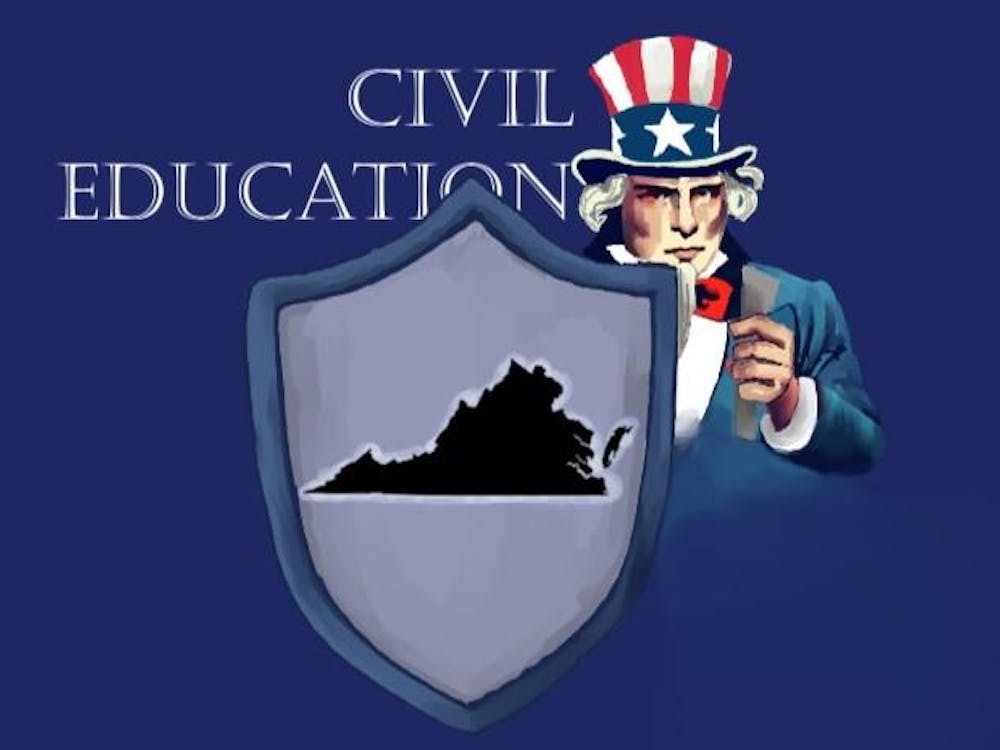On March 25, Gov. Terry McAuliffe signed Executive Order 40, which outlined steps to improve the law enforcement practices of the Department of Alcoholic Beverage Control Board’s “special agents.” This order dictates the crucial re-training of ABC special agents on the use of force and increased collaboration with local law enforcement agencies. However, Virginia would be better off without any ABC special agents at all, as they hurt local police departments and serve an unnecessary purpose.
In response to the conclusion of Prohibition, the Virginia General Assembly established the ABC to control the sale of alcohol (through a state-run monopoly on hard liquor and by dispensing licenses to restaurants) and to enforce alcohol consumption laws. At the heart of its operation are ABC special agents, a group of hundred-plus “sworn police officers vested with statewide authority of arrest,” according to the ABC website.
Any “assistance” by — or the mere presence of — ABC special agents can hurt local police forces, as they undermine consistency in law enforcement and lack knowledge of local conditions. It is not that local police unanimously dislike ABC special agent presence. In a Style Weekly piece, officers from the Richmond Police Firearms and Drug Enforcement unit described ABC special agents as incredibly useful, citing that ABC assisted FADE and other police in making 99 arrests from Jan. through March 2004. However, the utility of ABC special agents to local police mostly lies in the resources and manpower they can offer when police departments face budget cuts. If the state dollars employing the ABC special agents instead employed more local officers, I’m sure the ABC presence would not be missed.
This past year in Charlottesville has demonstrated the positive impact a local police force can have on the people. Students — a group not characterized by their deference to authority — overwhelmingly revere Charlottesville Police Chief Timothy Longo. A Mar. 23 Yik Yak post gave a shout-out “to Longo and CPD for being the real MVPs this year.” The relationship of respect between CPD and students is especially notable given the race and class tensions that make interactions between the University and Charlottesville difficult. ABC special agents lack rapport with either students or Charlottesville residents. According to Trinity Irish Pub owner Kevin Badke, the ABC special agents claimed their standing outside the bar was to ensure there “wasn’t a riot.” The contrast between this intention and the actual impact of the incident demonstrates how ignorant the officers were of the likely effects of their actions on the University and Charlottesville.
Whereas a local police force seeks to ensure safety, prevent crime, and maintain peace in a community, the ABC goal is to identify and punish alcohol law infractions. Thus, ABC special agents also behave differently than local police due to their different — and myopic — goal. These goals are frequently incompatible. When the 2013 four-day Lockn’ Music Festival was policed by the Nelson County Sheriff Office and the ABC, Nelson County Captain Ron Robertson described ABC Special Agent Matthew C. Layman’s behavior as that of “a storm-trooper or Gestapo agent.” The ABC recommended revoking the venue’s alcohol license, made seven major drug arrests and charged the festival with insufficient lighting that made it difficult to see crime. To the ABC, “regulation does not require proof of knowledge. It does require proof the conduct was allowed,” explained ABC attorney Elizabeth Flournoy. The Nelson County Sheriff’s Office found few problems, gave out no alcohol violations and chose not to arrest the few lawbreakers it saw due to potential for rioting. Unlike the ABC, it did not seek to punish the venue for the illegal conduct it made a good-faith effort to prevent.
A common argument for the existence of ABC special agents is that, according to ABC Special Agent Slonaker in the Style Weekly piece, “Alcohol violations are precursors to other things.” Thus, so the thinking goes, special knowledge of the agents on the root cause of many crimes — alcohol — gives them a greater understanding of them. I disagree with this construction of interpreting crime. Alcohol is not the root of all evil. Rather, the use of ABC regulatory inspections has allowed police forces to conduct criminal investigations such as drug searches in bars without a warrant.
Many of the Virginia alcohol laws the ABC spends its time enforcing are rooted in the belief that alcohol consumption is a state-tolerated sin. Virginia law even pretends “bars” do not exist. Rather, it distributes liquor licenses to “mixed beverage restaurants,” which must receive at least 45 percent of their total gross sales from food and nonalcoholic beverages. This bias against bars is hostile to businesses and prevents them from charging the market price for their cocktails. The alcohol laws that actually have some claim as being in the public interest can be regulated largely by the ABC’s civilian licensing technicians.
An argument could be made that the ABC should not exist at all. Yet The Cavalier Daily’s Managing Board was right not to advocate for all-out privatization of the ABC-operated liquor monopoly. While the state ought not to have a monopoly to prevent a “public bad,” ABC stores are a major source of state revenue. That said, contributing to the state general fund does not give the ABC the right to run its own “special agents.” It does not require a handgun to handle paperwork.
Elaine Harrington is an Opinion columnist The Cavalier Daily. She can be reached at e.harrington@cavalierdaily.com.






